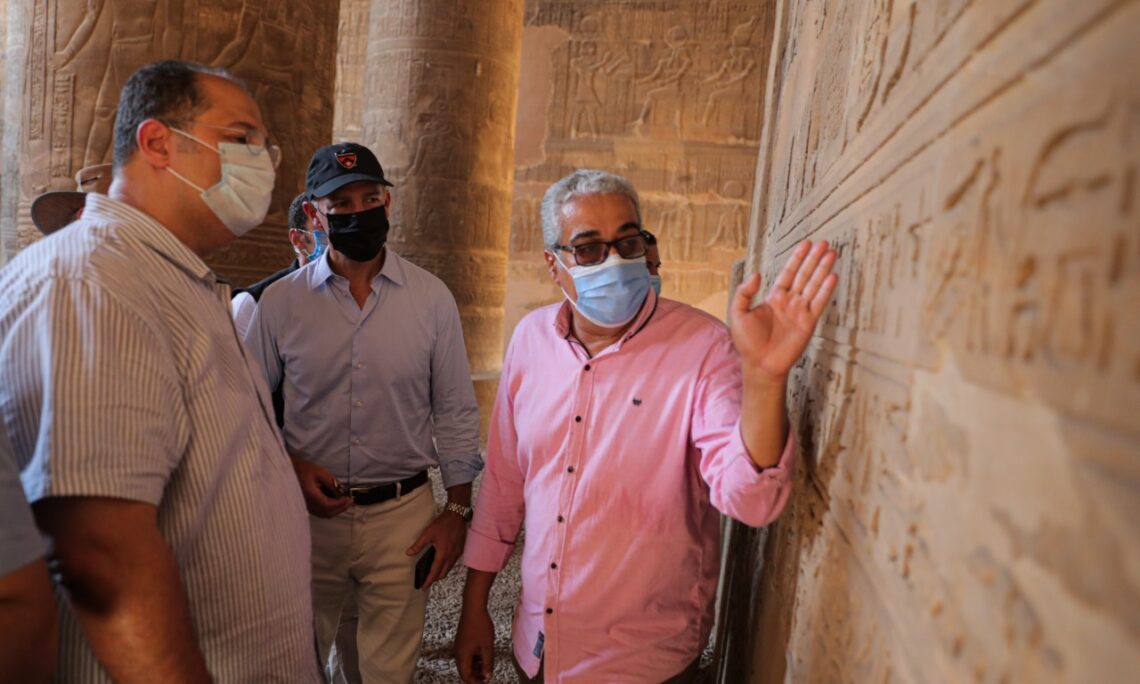
Report highlights 2 Egyptian projects among major clean energy ventures in N.Africa
A report by Energy Capital & Power highlighted two Egyptian projects – Suez Wind Power ...

The United States has provided about 4.5 billion dollars to Egypt to support projects serving the United Nations Sustainable Development Goals (SDGs).
All projects were meant to attain seven of the sustainable development goals. The projects sought to accomplish Goal 1 for no poverty through unlocking human potential, Goal 2 for zero hunger through ending all forms of malnutrition, Goal 4 for quality education through providing training and life skills for the future, Goal 5 for gender equality through promoting women empowerment, Goal 8 for decent work and economic growth, Goal 11 for sustainable cities and communities, and Goal 17 for partnerships to achieve the goals.
US Ambassador to Egypt Jonathan Cohen said on Saturday the US has contributed $3.5 billion to better drinking water and wastewater services in addition to about $1 billion to improve the productivity and marketability of agriculture across Egypt.
Cohen made the remarks during a ceremony to inaugurate the Luxor District Wastewater Stabilization Treatment Plant. This plant will serve 330,000 people in Luxor District, with villagers to enjoy for the first time sanitation services.
During the inauguration, Ambassador Cohen stated, “The United States has contributed $3.5 billion to bring drinking water and provide wastewater services to more than 25 million people throughout Egypt. With this new wastewater treatment plant, the United States is ensuring everyone in Luxor District will have access to reliable wastewater services now and well into the future – including 50,000 rural residents who will have access to such services for the first time in their lives. The United States has also provided more than $1 billion to improve the productivity and marketability of agriculture across Egypt. This includes the establishment of the Esna Packhouse, which has helped more than 5,000 farmers grow more valuable crops, enabling them to double their annual incomes.”
Egyptian Minister of International Cooperation Dr. Rania El Mashaat was also present at the ceremony and visited a number of development programs in partnership with the US Agency for International Development (USAID).
The projects were meant to back farmers, women and youth in the Governorate of Luxor with climate-resilient water and food security.
Seeking to empower farmers and communities in Upper Egypt, the USAID-funded “Advanced Marketing and Agribusiness Logistics” AMAL Horticultural Pack House helps to triple income and employment opportunities for local farmers and connects them with local and regional markets.
It will also increase their productivity through applying smart farming technologies.
Targeting women and children in particular, the project will help to improve the nutritional status of women and children through increasing local food production and strengthening agricultural value chains in several governorates, including Beni Suef, Assiut, Sohag, Qena, Al Qasr, and Aswan, as well as Cairo.
Current statistics point that the project has led to the production of 400.4 tons of food in markets in one year, and created more than 78,000 job opportunities and 9 markets linked to Sohag, Qena, Al Qasr, and Aswan.
Another US project in Egypt was the USAID “Feed the Future: The US Government’s Global Hunger and Food Security Initiative”, which aims to help Egyptian smallholder farmers comply with global agricultural practices and fair-trade standards by helping farmers become more self-reliant.
Pursuing SDGs, El Mahrousa Village Egypt Food Security and Agribusiness (FAS) project aims to improve income and food security for at least 14,000 Upper Egyptian smallholder farmers across seven focal governorates – including Assiut, Aswan, Beni-Suef, Luxor, Minya, Qena, and Sohag.
The project has so far seen the provision of training and technical assistance to more than 8,000 farmers in seven governorates.
The project also trained more than 12,000 women and their families on nutrition and food safety.
It has also been facilitating the negotiations of contracts with more than 1,200 farmers who will achieve approximately $5.1 million from sales proceeds.
Lastly, the USAID-funded new wastewater stabilization and treatment plant will have the capacity to serve up to 332,000 people through 2037 and use energy-efficient technologies with low power consumption to reduce the costs of operation.
Economic cooperation was strengthened as Mashaat signed the amendment of the fifth of the agreement in June of this year, providing a new grant worth $426.4 million. For over 40 years, USAID’s program in Egypt has totaled over $30 billion since 1978 to promote the development of Egypt and create a healthy and educated population.
A report by Energy Capital & Power highlighted two Egyptian projects – Suez Wind Power ...
The opening concert of the Annual Meeting 2025 in Davos-Klosters will address the pressing issues ...
Juhayna Food Industries proudly announced that its agricultural arm, El Enmaa for Agricultural Development, has ...


اترك تعليقا